In the world of theater, nerves and debilitating palpitations are inescapable for the artist as they unveil a new creation to the world. No matter how many plays someone has authored, scripts they’ve staged, or spotlights taken, Opening Night has a singular swirling magic: for where once there was nothing, there is now something. And in restaurants, the experience of opening doors on the inaugural night is no different.
On this particular evening, renowned chefs José Andrés and Aitor Zabala are mere hours from lifting the curtain on their new oeuvre, a ten-stool tasting experiment cozied behind the aptly named, three-hundred-seat Bazaar Restaurant, which has been the centerpiece of Los Angeles’ SLS Hotel since 2008. Andrés, renouncing a formal chef coat in favor of a t-shirt that boldly proclaims “We Are All Dreamers,” weaves through the kitchen, tasting from percolating pots, satisfied the myriad aromas connote a kitchen in harmony. Zabala ensures the tidy order of the custom-made bowls, spoons, and articulating mannequin hands seemingly plucked from the Vitruvian Man and readied for his signature brand of imaginative plating.
It is the first night of service for a passion project five years in the making. Somni, the name taken from the Catalan word for dreams, is a twenty-five-course tasting menu intent on bending the imagination. Marcona almonds with impossibly creamy centers stun with a sudden textural subversion, while a dish known as “snow” is designed to transport the L.A. clientele into a season foreign to their quotidian. Somni is a rare boutique of a restaurant, one where cooks outnumber guests, painstakingly made juices are offered as an alternative to wine pairings—where for two and a half hours, diners voyage through an unprecedented realm of conceptual taste and visual wizardry.
With the clock’s unrelenting countdown to showtime, and the final preparations unceasingly whirling in the background, the pair steal a private moment to share their thoughts on dreams, creativity, food as art, and their work’s unintended—although welcome—connection to Andrés’ broader humanitarian agenda.

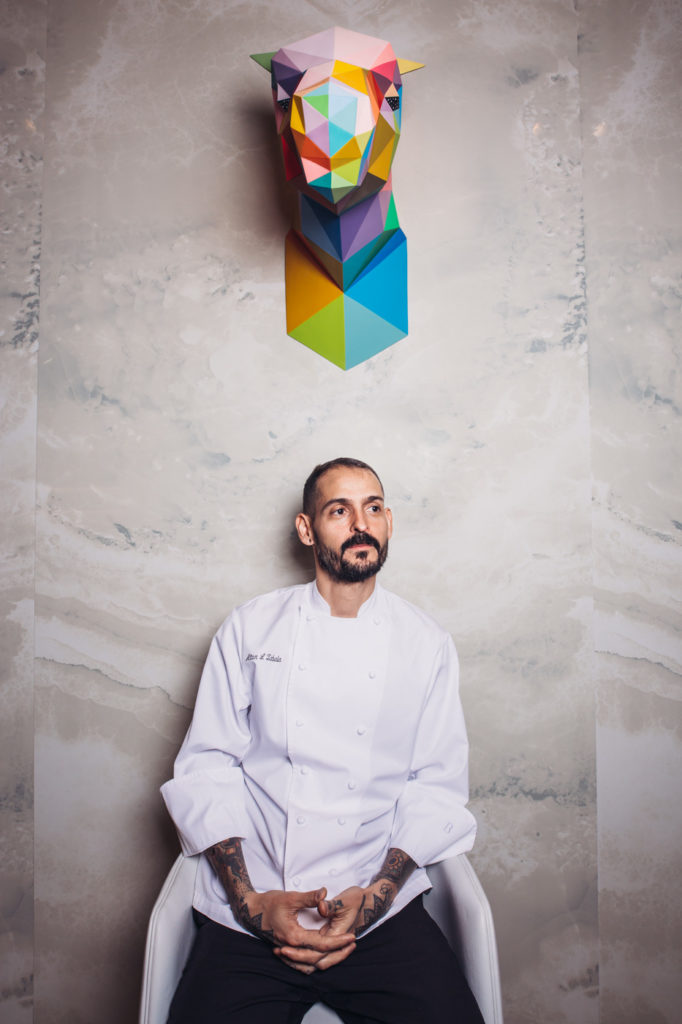
When you refer to “dreams,” what or whose dream are you invoking?
Aitor Zabala: I think we dream together. We consider it one dream. We bring our own personality; but in the end, we are a team, so it’s our collective dream.
José Andrés: That the real meaning behind the word somni is for dreams to come true, they must be propelled by hard work. Dreams don’t happen by paying seven dollars and watching a Disney movie. Don’t get me wrong, I love Disney movies. But for me, real dreams equal hard work. Everything is earned. You can easily have a recipe on a piece of paper, but you need people who can dream—and dream together—because at the end, you are only as good as the people you have around you.
The ThinkFoodGroup (founded by Andrés, which now includes more than a dozen restaurants around the world) is only able to do as much as it does because a lot of people are dreaming big and working hard to make those dreams happen. In the case of Somni, Aitor is the leader; he is pushing the dream forward. And when others see his work ethic, they start working toward the vision he has defined.
Zabala: You want it to be hard because when you arrive at the goal, you feel greater reward.
What is behind the decision to keep the dining room to ten stools?
Andrés: Most often, when you open a small restaurant it’s because, number one: your neighborhood cannot handle anything more; number two: you don’t have the money for a bigger space. When I opened minibar in Washington, D.C.—where we do only six guests per evening—we didn’t have a choice. We didn’t have the money to open a big place, and the opportunity we were given was to work with a very tiny room. But Aitor and I have always had the dream since we were young, to do the best food we can. These small places allow us to do that.
My friend Ferran [Adria of El Bulli] is very smart. Many years ago, he said, “Why on earth do you want a fifty-seat restaurant of creative cooking? Open one table.” This is one table. We want it to be small. We want to be close to everybody. We want to be one.
Zabala: It’s like they say: when you go to war, you go with your chest open. You have nothing to cover you. The guests can see what we are. It compounds the pressure on us because we have nowhere to hide.
Can you give us a glimpse of the dishes you’re currently developing?
Zabala: In almost all our restaurants, we’ve had a pea dish on the menu. Peas are my favorite vegetable in the world. I put them in the same category as foie and truffles. We have a dish that features a kohlrabi cream with the first sugar snap peas of the season and the last truffles of the season we brought from Spain. On the plate we offer you the six different sizes of peas currently available at the farmer’s markets; we’ve adjusted the cooking time for each size so they’re all perfect. When you bite into one, we want them to explode like caviar.
I’m also working on a prototype for a lamb tartare we dry-aged in house for ten days and marinated in many savory sauces to intensify the flavor. It’s topped with fresh watercress and an ice we made from horseradish. We’re waiting on a bowl to be custom-made for this dish, to match the color of the lamb. The bowl will have a nice texture on the sides, but be smooth where the tartare sits so the knife and fork won’t grate unpleasantly.
And I don’t drink very often, so I wanted an alternative to the traditional wine pairing. We looked at all the iconic wines from California—chardonnay, sauvignon blanc, cabernet, zinfandel, syrah, pinot noir—and broke them down according to color, smell and taste. We then took those grape varietals and made a juice, which we infused with the colors and flavors that restore all the properties of the original wine. They oxidize for about twelve hours to lose their juice feel and take on a more complex tone. You can have a “glass of wine” that looks and tastes like wine, but doesn’t affect you alcoholically. We call this pairing “the illusion.”
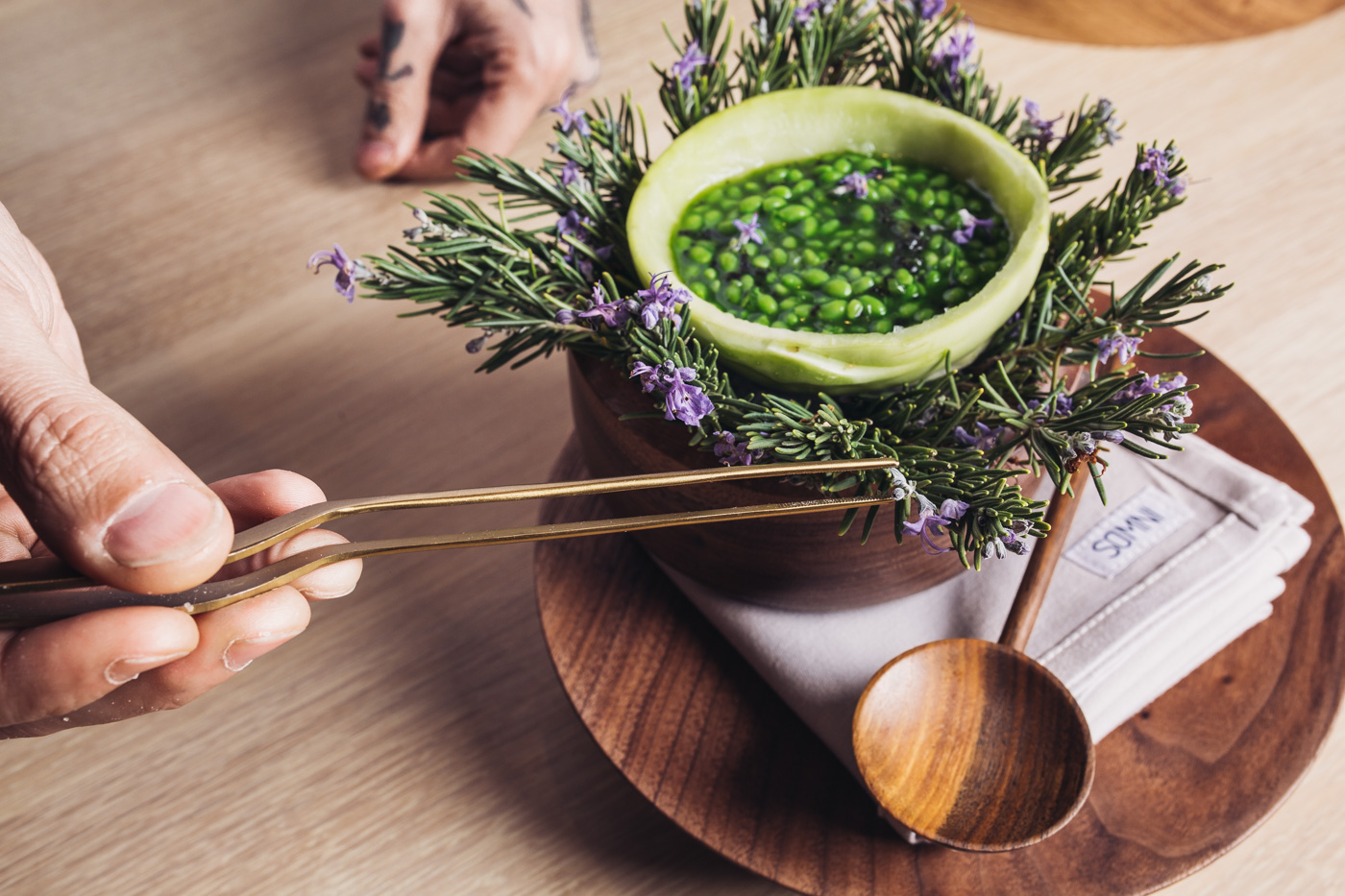
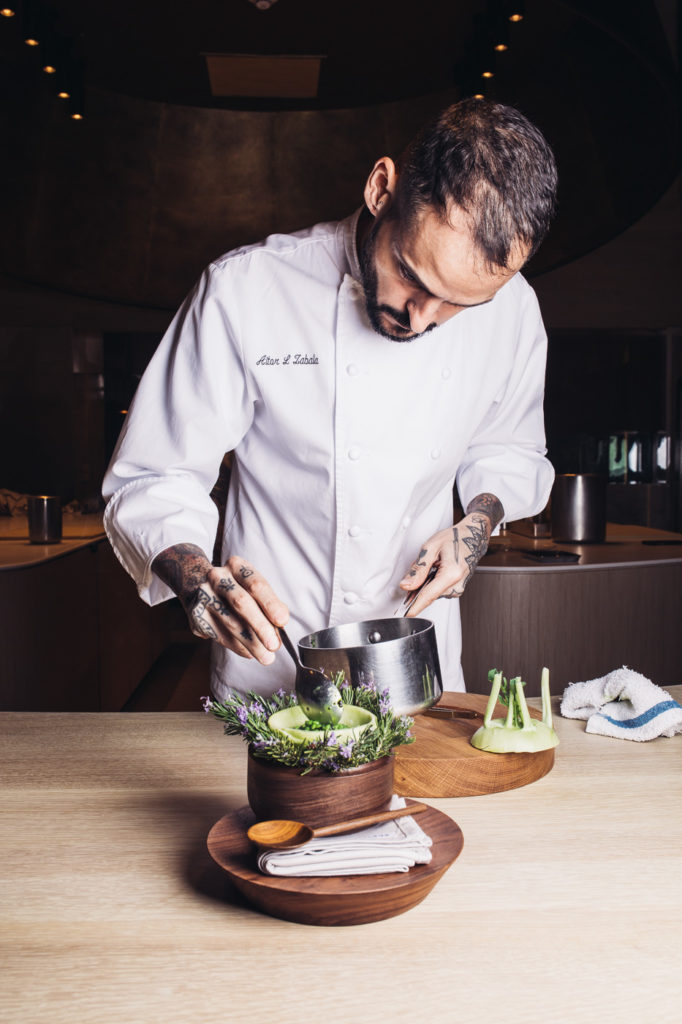
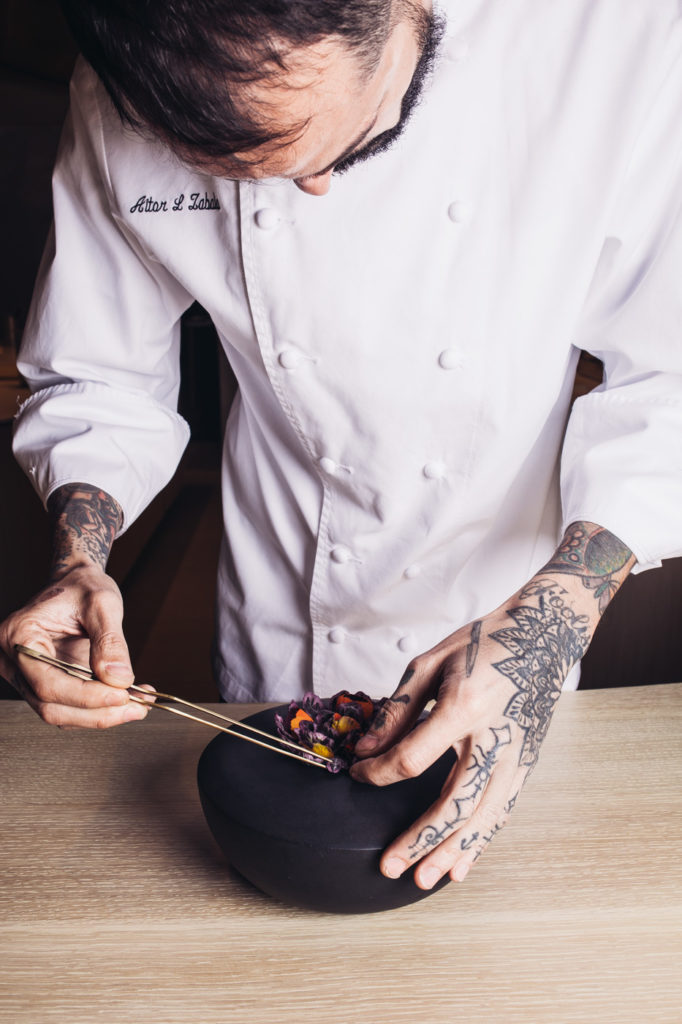
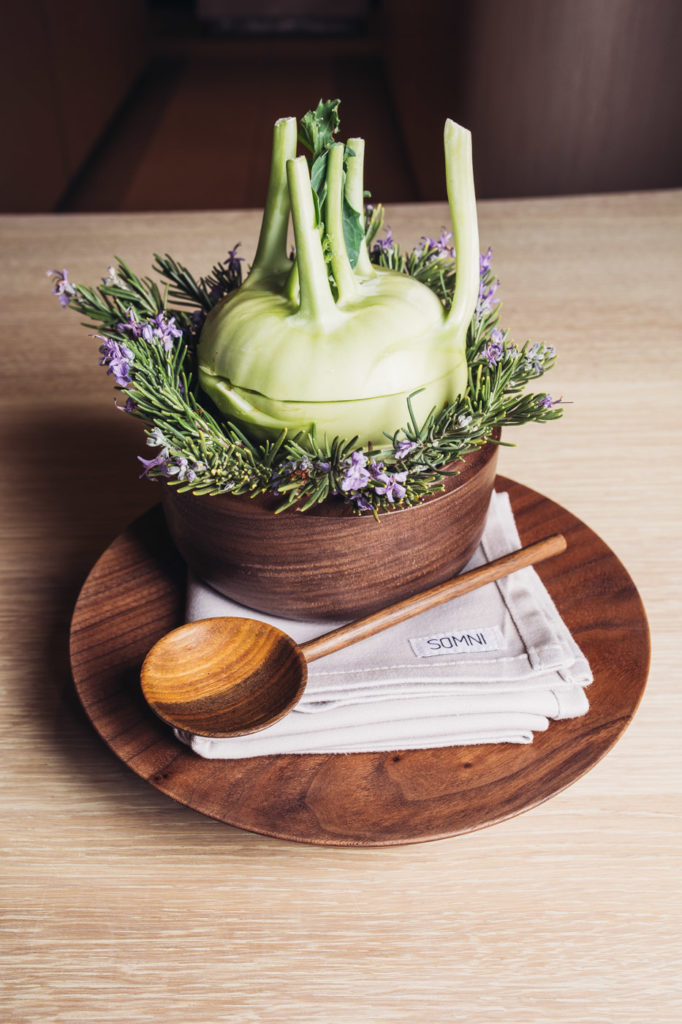
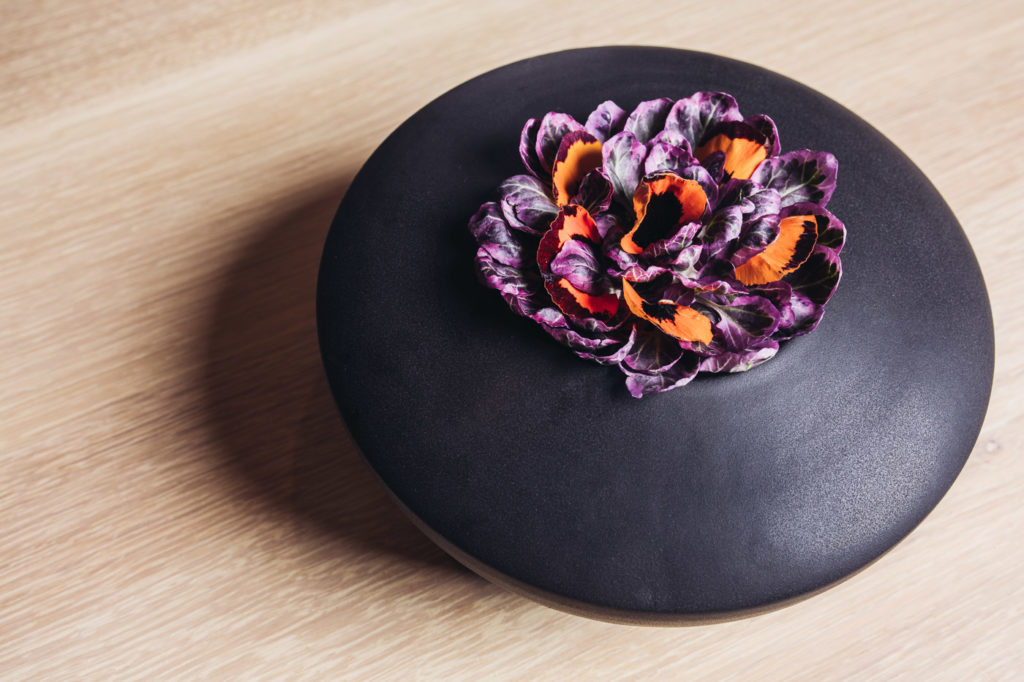
When the two of you met at El Bulli, José, you tapped Aitor to move to America and work with you. What did you see in him that led to your invitation?
Andrés: Everybody said, “Don’t bring him in!” [laughs] It’s because we all come from the same place. All of us who grew up at El Bulli in Catalonia, we all went through the same smells, sounds, tastes, aromas; we know the same wind, ocean, rain. It’s very hard to explain, but it’s part of our DNA. Everybody thinks the DNA of humanity is already written before we are born, but for me that is not true. DNA is building up and repositioning according to our personal experiences. I like to be around people who have the same DNA with which I grew up. We can understand each other very quickly, without speaking much. It doesn’t mean we’ll always agree. You know how Saddam Hussein only surrounded himself with people from his hometown because they were bound by a common experience? That’s a signature move of the bad guys. The good guys can do that too.
Zabala: When I first met José, he walked into El Bulli with Anthony Bourdain. We spoke a little and Ferran said, “Why don’t you go to America in winter when we close the restaurant and spend some time with José?”
Now, after eight years, we are so close. We understand each other so easily. We have the same language, the same vocabulary, even if we are still woven from different moments, different experiences. What keeps me here is the freedom I am given to make decisions and create.
How would you describe creativity in the culinary world?
Andrés: Creativity happens in any moment. It can happen right here, watching this empty cappuccino cup—the way the foam forms on the edges can lead to an idea for the next dish. Ferran always mentioned it changed his life when he heard French chef Jacques Maximin say, “Creativity means not copying.” Since Aitor and I agree with that statement, we instinctively try and push the boundaries.
Here we push the big question of art. Is cooking art? A lot of people say chefs are not artists. Are you crazy? What are you talking about? You’re saying this piece we hang on the wall is art, but the dishes we are creating at Somni are not? One is as artistic an expression as the other. Who says art cannot be edible?
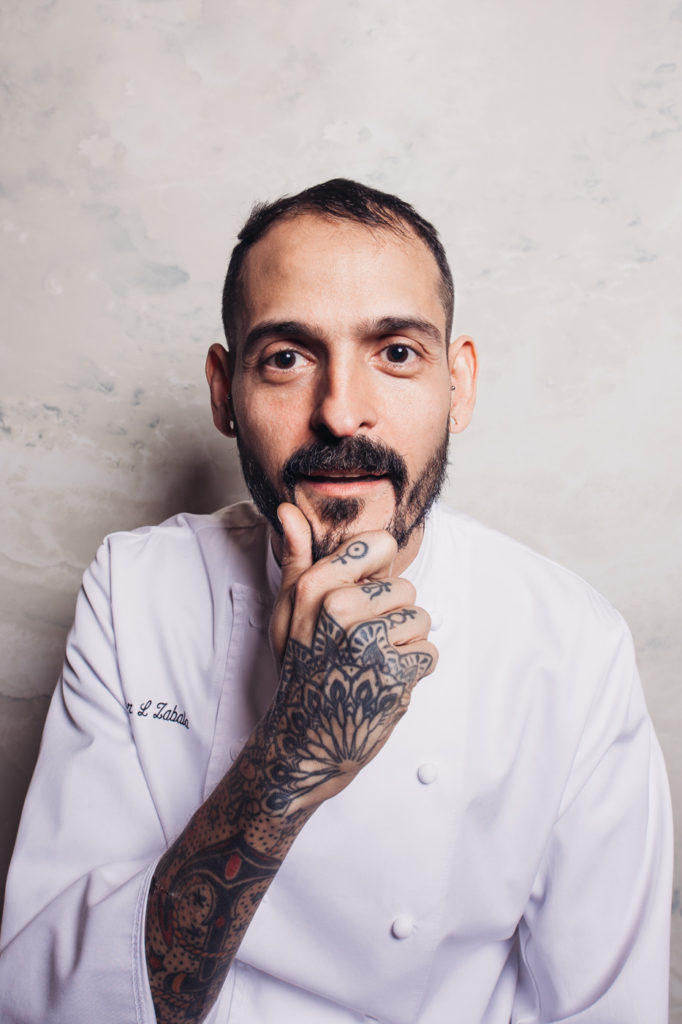
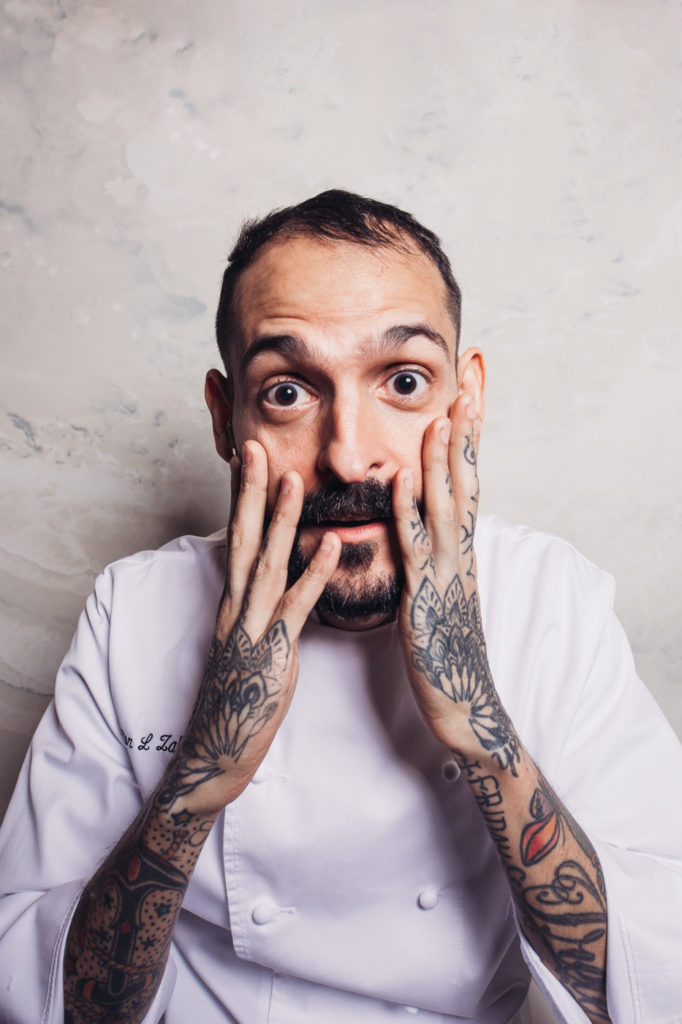
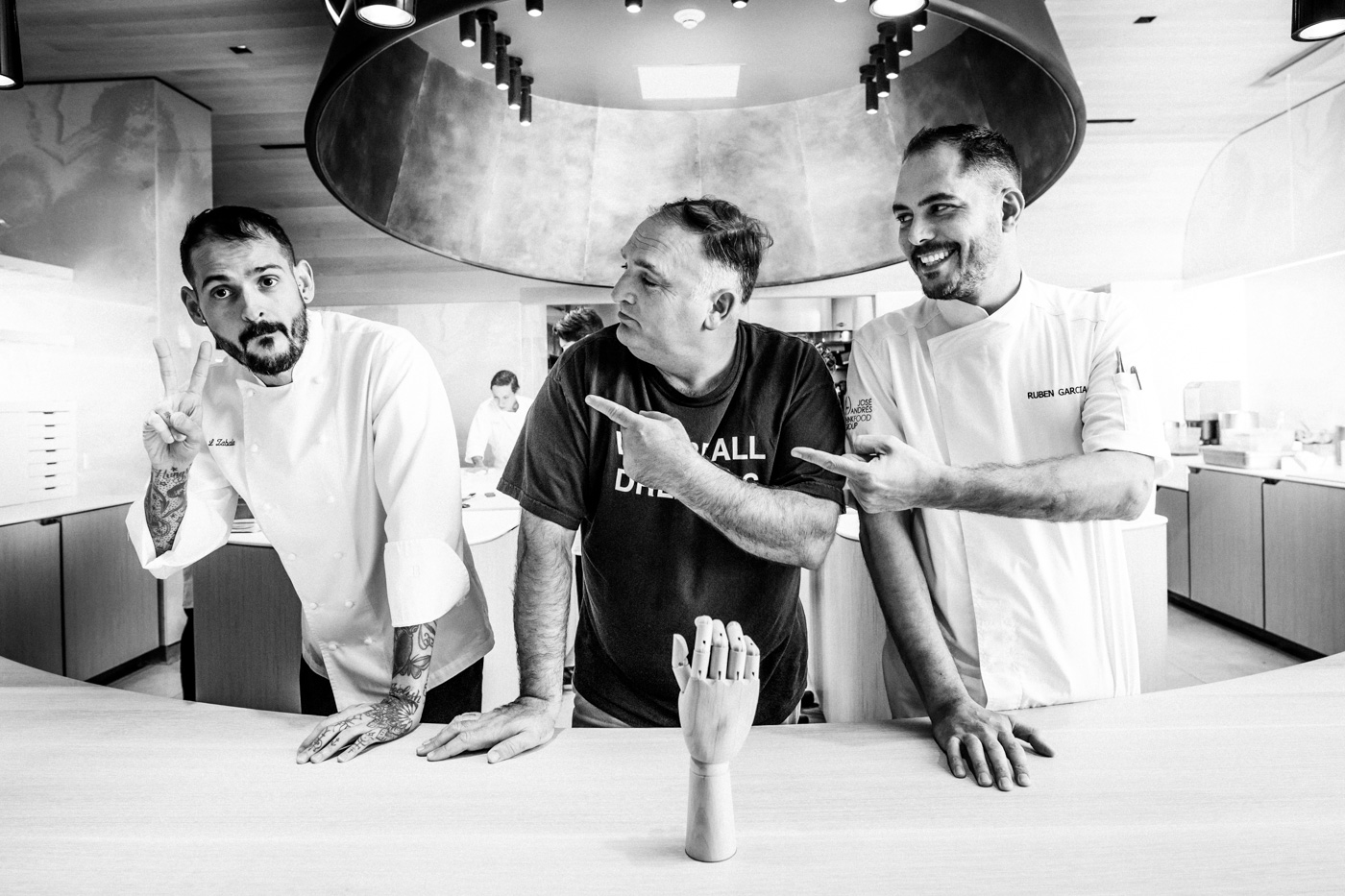
As guests embark on this conceptual twenty-five-course culinary journey, what do you hope they will learn, feel and understand?
Zabala: We think we can provide all the things that can make people feel happiness. We want to provoke people—to make them laugh, love and think. Some of the dishes on the tasting menu you’ll eat and simply think, “That was really good.” Others will hit you and elicit something far more complicated. You don’t just come to Somni to feed your belly; you come to feed your thoughts—your soul. You will not leave here hungry, that’s for sure. But we expect there is another point—another way you can be nourished. We want to go a little further.
Andrés: If Aitor would be on a desert island with nobody—no press, no Instagram, nobody clapping for him or booing at him—he would still be doing the exact same thing. This is his destiny. This is what he loves to do. He’s going to put all the hours of his life toward the pursuit of this excellence. We do what we do because we love to share it. We want to make others as happy as we are.
Chefs are, in a sense, very giving. That’s why this year I’m going to take my name off the company. It will no longer be José Andrés’ ThinkFoodGroup. It will just be ThinkFoodGroup. I worked very hard to build the company and “belong.” Now that I belong, I want to make sure everybody else belongs too. Inclusion is so much more powerful than exclusion.
Does that sense of giving extend to the humanitarian work with which you are both involved?
Zabala: There is always the need to pay something back to society. José, the owner of this company, has a humanitarian vision. He has put in place the opportunity for us to do whatever we can to help. But it’s a natural thing; it’s not something that is forced upon us.
Andrés: Many on the team get involved on their own accord. Many were in Houston with me during Hurricane Harvey. Aitor went to Nicaragua to teach women how to cook on gas stoves when we transitioned them away from dangerous charcoal. I am very happy they participate as much as they do.

How difficult is it for you to step from a crisis-stricken world into one of a boutique restaurant? Do you have to reset emotionally?
Andrés: I don’t know if I am ready to talk about that yet. Personally, in the last six months I have been through a very important personal philosophical change that I still do not fully understand. Creative people can be very possessive, but sometimes they are very generous. I have been trying to be more on the giving side than on the possessive side.
Does the world of aid inform the level of dining proposed at Somni?
Andrés: At Somni, it can take ten people to make twenty little croissants. What could that possibly have to do with fighting hunger or disaster relief? On the surface, they have nothing to do with each other and I tried very hard to separate them; but if I’m separating them, I’m the one building walls. We are in the business of not building walls because the walls are unfortunately already there. It is our responsibility to rid ourselves of these imaginary walls.
In the same room where we were doing our meeting to open Somni, thirty minutes later we were asking ourselves what we can do about hunger. In this very room we were designing a truffle menu and we came up with the idea for L.A. Kitchen. L.A. Kitchen, in the care of my friend Robert Egger, is now a big success. We saved a quarter million pounds of food from going to waste, we made almost two hundred thousand meals for the hungry and elderly, and we provide culinary training to people who are transitioning out of incarceration.
I believe Aitor, myself, and our team will be better creators because we will be creating from a place of love, rather than a place of greed. When created from a place of love, that creation is going to be so much more beautiful, and maybe, more impactful.
Zabala: Everywhere else, the sky is the limit. For us, it’s not. The sky is only the beginning.
——
Somni is located inside The Bazaar by José Andrés at the SLS Hotel Beverly Hills. Reservations can be made here.

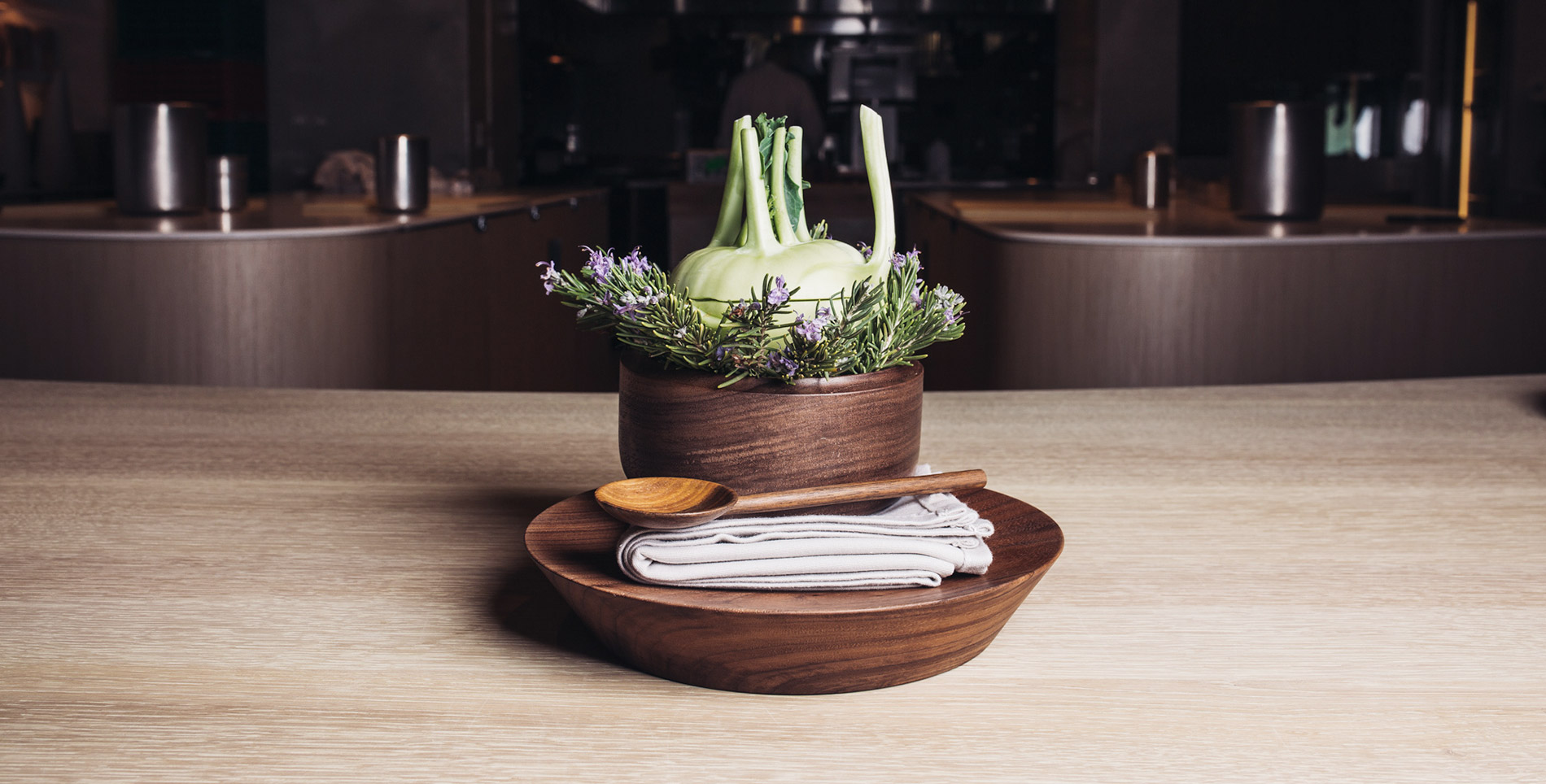

Our comments section is for members only.
Join today to gain exclusive access.